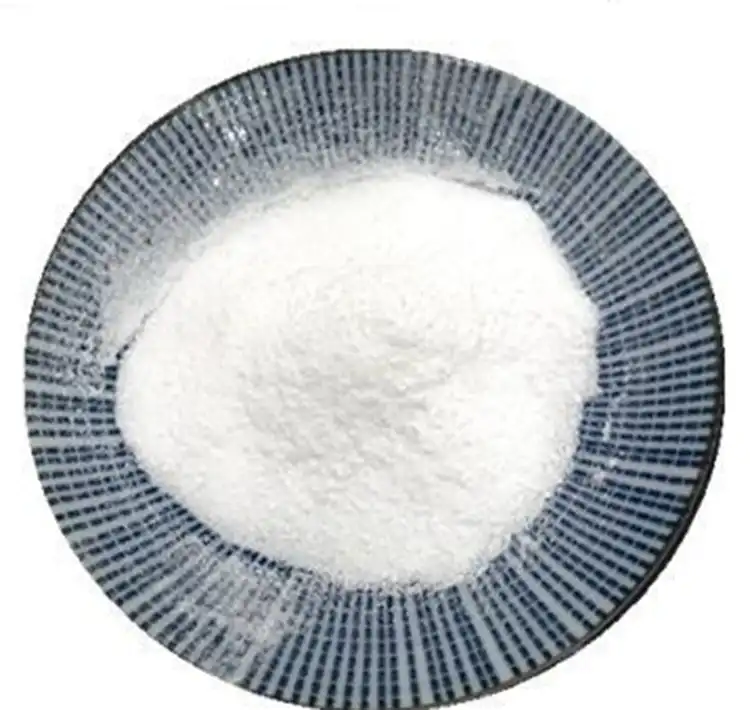Safety Profile of N Methyltyramine Hydrochloride Powder
N Methyltyramine, also known as NMT, is a naturally occurring compound found in various plants, including bitter orange. It's also synthesized in laboratories for use in dietary supplements. The safety profile of N Methyltyramine Hydrochloride powder is a subject of ongoing research and debate.

While some proponents claim that NMT can boost metabolism and enhance fat burning, scientific evidence supporting these claims remains limited. The compound's molecular structure is similar to other stimulants, which has raised concerns about its potential cardiovascular effects.
Interestingly, contrary to popular belief, some studies suggest that N Methyltyramine might actually increase appetite and slow down fat breakdown in cells. This paradoxical effect underscores the complexity of its physiological impact and the need for further research.
The safety of N Methyltyramine Hydrochloride powder is further complicated by its potential interactions with other substances. Like many stimulants, it may amplify the effects of caffeine and other energy-boosting compounds commonly found in dietary supplements. This synergistic effect could potentially lead to adverse reactions, especially in individuals sensitive to stimulants or those with pre-existing health conditions.
It's crucial to note that the long-term effects of N Methyltyramine Hydrochloride consumption remain largely unknown. The lack of extensive clinical trials and long-term safety data means that potential risks associated with prolonged use cannot be ruled out. This uncertainty has prompted health authorities to adopt a cautious stance regarding its use in dietary supplements.
Understanding the Risks of N Methyltyramine Hydrochloride
While the full spectrum of risks associated with N Methyltyramine Hydrochloride powder consumption is not yet fully elucidated, several potential concerns have been identified based on its chemical properties and limited available research.
Cardiovascular risks are among the primary concerns. As a compound with stimulant-like properties, N Methyltyramine Hydrochloride has the potential to increase heart rate and blood pressure. For individuals with underlying cardiovascular conditions or those prone to heart problems, this could potentially exacerbate their health issues.
Another area of concern is the compound's impact on the central nervous system. Some users have reported symptoms such as jitteriness, anxiety, and insomnia after consuming supplements containing N Methyltyramine Hydrochloride. These effects are consistent with the stimulant nature of the compound and highlight the importance of cautious use, especially for individuals sensitive to such effects.
The potential for drug interactions is another risk factor to consider. N Methyltyramine Hydrochloride may interact with various medications, including but not limited to:
- Monoamine oxidase inhibitors (MAOIs)
- Blood pressure medications
- Stimulant medications used for ADHD
- Certain antidepressants
Furthermore, the purity and consistency of N Methyltyramine Hydrochloride powder in dietary supplements can vary significantly. The lack of stringent regulation in the supplement industry means that the quality and safety of products containing this compound cannot always be guaranteed. Contamination or mislabeling could potentially expose consumers to additional, unforeseen risks.
It's also worth noting that the effects of N Methyltyramine Hydrochloride may be more pronounced in certain populations. Pregnant or nursing women, children, elderly individuals, and those with chronic health conditions should exercise particular caution and consult with a healthcare professional before considering the use of any products containing this compound.
Regulations on the Use of N Methyltyramine Hydrochloride
The regulatory landscape surrounding N Methyltyramine Hydrochloride is complex and varies across different jurisdictions. In the United States, the legal status of this compound in dietary supplements is somewhat ambiguous.
The Food and Drug Administration (FDA) has not explicitly approved N Methyltyramine Hydrochloride powder for use in dietary supplements. However, under the Dietary Supplement Health and Education Act (DSHEA) of 1994, dietary supplement manufacturers can market products containing new dietary ingredients without FDA pre-approval, provided they can demonstrate a reasonable expectation of safety.
Despite this regulatory framework, the FDA has expressed concerns about the safety of N Methyltyramine Hydrochloride and is actively investigating whether it should be allowed in dietary supplements. The agency has issued warning letters to some companies marketing products containing this compound, citing potential safety risks and lack of adequate safety evidence.
In the realm of sports, the World Anti-Doping Agency (WADA) has taken a clear stance by banning N Methyltyramine for use during competitive sports. This prohibition reflects concerns about its potential performance-enhancing effects and possible health risks to athletes.
Other countries have adopted varying approaches to regulating N Methyltyramine Hydrochloride. For instance:
- In Canada, it is not approved as a Natural Health Product ingredient.
- The European Food Safety Authority (EFSA) has not yet issued a specific opinion on the safety of N Methyltyramine in food supplements.
- In Australia, it is not included in the list of permissible ingredients for use in complementary medicines.
Conclusion
The safety of N Methyltyramine Hydrochloride powder for consumption remains a contentious issue. While some proponents tout its potential benefits for weight loss and athletic performance, the lack of robust scientific evidence and potential risks associated with its use call for caution.
Given the current state of knowledge, it's advisable to approach products containing N Methyltyramine Hydrochloride with skepticism and prioritize safety. Consulting with a healthcare professional before using any supplements containing this compound is strongly recommended, especially for individuals with pre-existing health conditions or those taking medications.
For more information about plant extracts and their applications in various industries, please contact us at emily@jiubaiyuanbiotech.com. Our team of experts is dedicated to providing high-quality, scientifically-backed botanical extracts to meet your specific needs.
